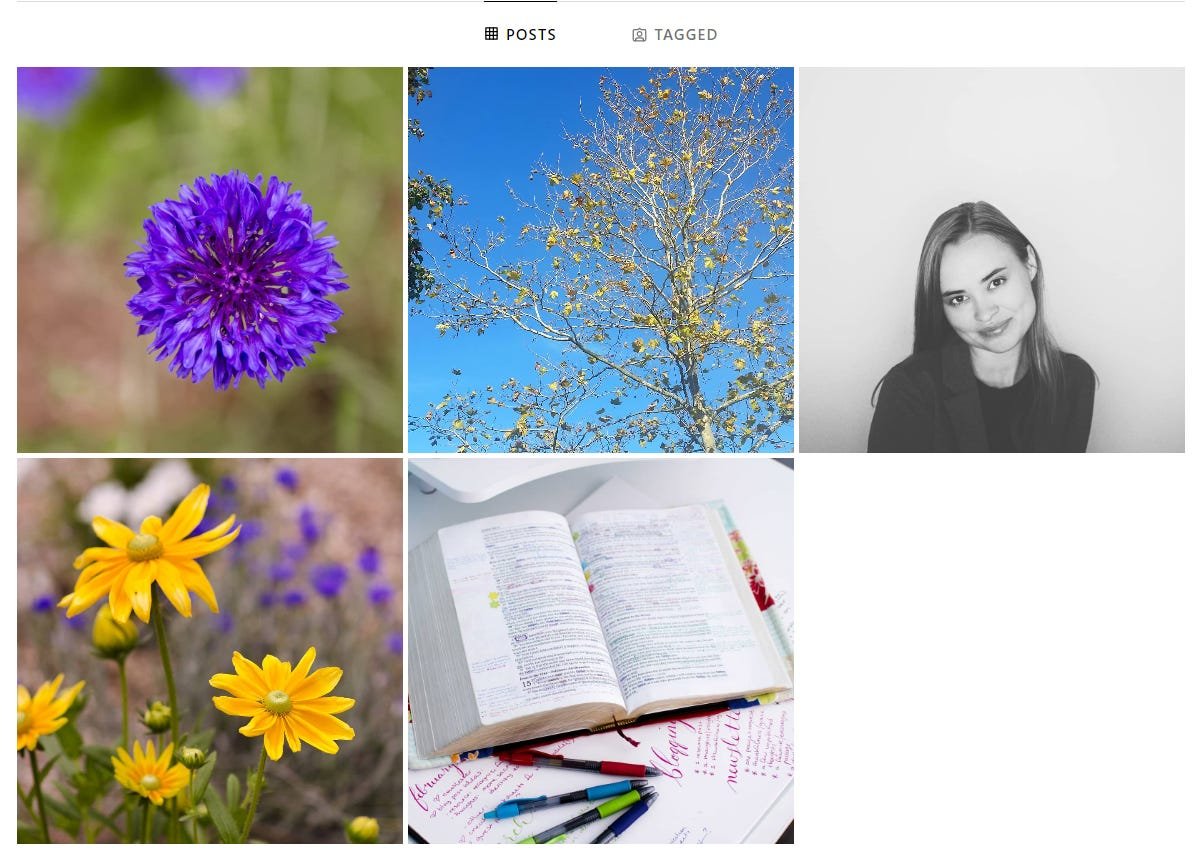inner earthquakes and hellfire
/Today I resurrected the old @halliewrites Instagram account that I started about six years ago, right when I was working hard on my first book and building up a community around the Bible180 Challenge. I was 24 years old, had been married four years, and had no children. These were only the earliest days of Instagram stories and reels didn’t yet exist, so the entirety of my presence can be found in a handful of photo posts with captions. Looking back at those posts, for me, is like a glimpse into the story of a young woman I met once, but barely remember.
But because I lived it, I can read the paragraphs in between the posts that the true outside observer will never see.
Can you tell that in the space between the first post and the second, the life I thought I had exploded?
Do you sense that between the colorless self-portrait and the phone camera snap of the last autumn leaves, I nearly gave up and walked away?
And in the caption beneath the bachelor button at the top of the grid—dated June 8, 2019—can you hear the shaking breaths of someone who survived, but still desperately fears that a survivor is all she will ever be again?
I may barely remember that person, but I will never forget that fear. I thought I had been permanently shelved, sidelined by God, and that I was doomed to waste the rest of my life because what I believed were my best years had been ruined by grief. If I wasn’t going to get to change the world as a young, free, childless Proverbs 31 wife, when would I ever have the chance?
But what I said in that caption rings true: “God works slowly. He’s a farmer, not a magician.”
I’ve aged 5 years and had two babies since then. I’ve continued to write, even though many times it seemed pointless. And I’ve been learning that no one changes the world without first navigating the earthquake within themselves.
I think I am just now learning to yield to the seismic shifts of the Holy Spirit in me. I don’t expect to be out there massively changing the world anytime soon, especially since the world that’s most important to me right now is that of my 3-year-old and my 6-month-old. But my heart is overflowing with thanksgiving for God’s grace and goodness that has gone with me at every step, even when I was sure He was the one trying to lead me over the edge.
I’m so thankful that I was born in the year 1994. A little earlier, and I’m fairly certain I would have been caught in the farce of idealistic Christian mommy blogging, hot on the heels of extreme purity culture. A little later, and I would have been buying into the deceptive appeal of today’s “tradwife” crowd. I missed them both by just a little, and thank God.
I’m so thankful I got married at 20 years old. Although processing through the sense that I couldn’t really have a fair choice in the matter at such a young age has been fraught, I know that God was gracious to teach me some very important things a lot earlier than I might otherwise have had the opportunity to learn. I lost less of my life to the lies.
I’m so thankful I married the person I did. I can’t imagine anyone else being able to weather these existential storms with me so humbly. The Holy Spirit is leading us as we walk after Christ together, side by side, and there is nothing more gloriously kingdom-of-heaven-like than that.
I praise and glorify God my Father that He did not allow me to stay the same, even when the process of change felt like traversing hellfire. His vision for me has been far greater, in the real and important ways, than my vision for myself ever was.






